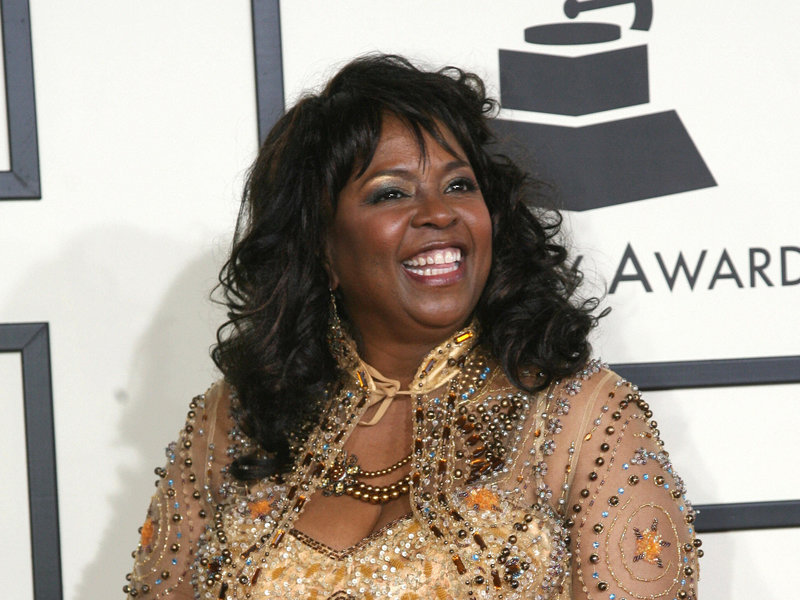Via The Guardian
The singer and songwriter Betty Wright, who has died of cancer aged 66, occupied a significant position in African-American music across six decades, beginning with powerhouse gospel in the 1950s and settling on an R&B, soul and funk groove from the 60s onwards that eventually led to work with superstar rappers of the 2000s.
Wright’s career began as a young child in a gospel group in Florida, and her signature song, Clean Up Woman (1971), was recorded when she was only 17, epitomising what became known as “the Miami sound” – Floridian soul music shaped by the many facets of her home city’s cultural melange.
After years of solid achievement in the US as a singer and songwriter, in the mid-80s she set up her own record label and, although she continued to record her own material, began to make a new name for herself as a producer and songwriter, collaborating with the likes of Gloria Estefan and Joss Stone. Later still her material was much sampled – including by Beyoncé – and she was able to undertake projects with rappers such as Snoop Dogg and Lil Wayne.
She was born in Miami, to Rosa (nee Braddy-Wright) and McArthur Norris. The infant Bessie – as Betty was christened – was co-opted into the family gospel group, the Echoes of Joy, at the age of two. The Echoes worked the Southern US gospel circuit and Bessie proved to be a vocal prodigy – so much so that by the time the group split in 1965, she was confident enough to start singing on her own, in a new R&B vein, and with a new name – Betty Wright.

Willie Clarke and Clarence Reid, two Miami-based musicians, were so impressed by the young girl that they signed her to Deep City, the only African-American record label in Florida. Wright’s debut 45, Paralysed, was released in 1965, and it sold well locally. However, Deep City lacked the resources to promote records properly, and so Reid and Clarke eventually passed Wright on to Henry Stone, a distributor with experience and contacts who was launching Alston Records in Miami.
Aged 14, Wright recorded her debut album for Alston, My First Time Around (1968), which not only revealed her to be a formidable soul singer but generated a single, Girls Can’t Do What the Guys Do, that reached the Top 40s of the US and Canadian pop charts.
Although subsequent singles failed to make much of an impression, Wright continued to sing in the Miami clubs on the weekends, building up valuable contacts in the music business. Then chart success returned in 1971 with Clean Up Woman, written by Clarke and Reid, which got to No 6 in the US. Based around a distinctive guitar lick played by Willie Hale, Clean Up Woman’s breezy, danceable funk ensured that Wright would be one of the few school pupils ever to have turned 18 with a million-selling hit record behind her.
The song also helped to launch the Miami sound, whose origins Wright associated firmly with the city’s vibrant and fluctuating cultural scene. “You’ve got a little Cuba, a little Jamaica, and a little Haiti; you’ve got a large Jewish culture and you’ve got calypso,” she told Billboard magazine. “Then you’ve got people who were born here or came from South Carolina, where they’ve got a heavy African culture too. It’s a very rhythmic roots music. Even the white acts that come out of Miami tend to be very soulful. We’ve got that serious, serious conga rhythm.”
Wright continued to produce popular songs across the 1970s – Baby Sitter, Let Me Be Your Lovemaker, Secretary, Where is the Love?, Tonight is the Night – although none quite matched the success of Clean Up Woman and generally made more of an impact on the US R&B charts than in the pop sphere. A prolific songwriter, she won a Grammy for Best R&B Song in 1976 for Where is the Love?, a song she had co-written.
Signing to Epic Records in 1981, Wright quickly grew disillusioned with the restrictions of being with a major company, and so launched her own Ms B record label in 1985. With her 1987 album Mother Wit she became the first African American woman to achieve a gold album on her own label.
From that point onwards, however, Wright began to achieve greater success by working with other artists. Estefan’s US No 1 single Coming Out of the Dark (1991) featured Wright’s vocal arrangements, and Wright co-produced and co-wrote every track on Stone’s 2004 album Mind, Body & Soul, which reached No 1 in the UK.
In 2006 she appeared as a mentor on the US reality TV talent show Making the Band, and in 2008 produced two songs on Tom Jones’s album 24 Hours. Her 2011 album, Betty Wright: The Movie, featured Snoop Dogg and Lil Wayne, and was praised by reviewers as her best effort in 30 years.
Wright continued to tour almost up to her death – she sold out the Barbican Centre in London in July 2019 – and earned considerable amounts from her back catalogue. Clean Up Woman has often been sampled, while Beyoncé used a section of Girls Can’t Do What the Guys Do for her 2006 single Upgrade U.
In 1985 Wright married Noel “King Sporty” Williams, a Jamaican musician who had co-written the song Buffalo Soldier with Bob Marley. Noel died in 2015; Wright is survived by three daughters and a son. Another son, Patrick Parker, was murdered in 2005.
Betty Wright (Bessie Regina Norris), singer and songwriter, born 21 December 1953; died 10 May 2020

 Westside Story Newspaper – Online The News of The Empire – Sharing the Quest for Excellence
Westside Story Newspaper – Online The News of The Empire – Sharing the Quest for Excellence




